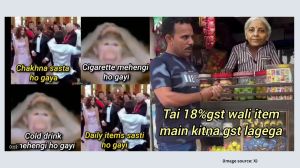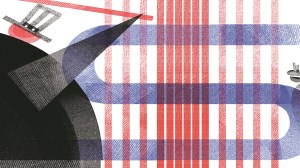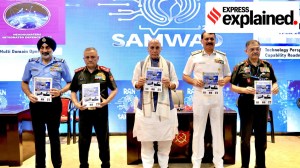Cashless treatment scheme for road accident victims: All you need to know about new govt scheme
Union Minister Nitin Gadkari 'Cashless Treatment' scheme: With the scheme now applying to road accident victims nationwide, here's all you need to know about the cashless treatment scheme for road accident victims announced by Union Minister of MoRTH, Nitin Gadkari.
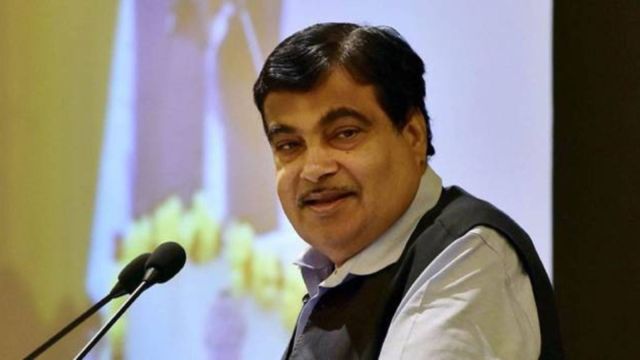 Cashless Treatment Scheme: According to Union minister Nitin Gadkari, the scheme will apply to all road accidents caused by the use of motor vehicles on any category of the road; here's all you need to know.
Cashless Treatment Scheme: According to Union minister Nitin Gadkari, the scheme will apply to all road accidents caused by the use of motor vehicles on any category of the road; here's all you need to know.Nitin Gadkari Cashless treatment scheme for Road Accident Victims: Union Minister Nitin Gadkari has recently unveiled a nationwide cashless treatment initiative aimed at providing essential aid to victims of road accidents.
This scheme builds on a pilot program launched on March 14, 2024, by the Ministry of Road Transport and Highways in Chandigarh, which has since been expanded to include Assam, Punjab, Haryana, and Puducherry.
The pilot program sought to establish a framework for delivering swift medical assistance to vehicle accident victims, particularly during the crucial “golden hour” following an incident.
With the scheme now extended to all road accident victims across the country, the government is expected to introduce an updated arrangement by March 2025 to enhance emergency medical response and aid those recovering from accidents.
Key Highlights of the initiative:
Union Minister of Road Transport and Highways Nitin Gadkari stated that the government would bear the cost of treatment if the police are informed about the accident within 24 hours. He also underlined that the government’s top priority is road safety, citing the alarming statistic that nearly 1.80 lakh people lost their lives in road accidents in 2024. Of these, 30,000 fatalities were due to not wearing helmets, Gadkari added.
“In the meeting, the first priority is for road safety and in the year 2024, 1.80 lakh deaths have occurred in road safety. 30,000 people have died because of not wearing helmets. The second serious thing is that 66% of accidents have occurred in people between the ages of 18 to 34,” Gadkari added.
Gadkari further highlighted the deaths of 10,000 children in road accidents caused by inadequate arrangements at entry and exit points near educational institutions, such as schools and colleges.
1. Cashless Treatment Coverage:
The program provides health benefit packages for trauma and polytrauma cases to eligible victims at hospitals accredited under the Ayushman Bharat Pradhan Mantri-Jan Arogya Yojana (AB PM-JAY).
Coverage can go up to ₹1.5 lakh per incident with the treatment period limited to seven days from the date of the accident, and is applicable to all motor vehicle-related road accidents.
2. Implementation Mechanism:
The National Health Authority (NHA) will work in collaboration with police, hospitals, and state health authorities to execute the program.
Victims can access the scheme through an IT platform that integrates the functionalities of the e-Detailed Accident Report (eDAR) application from the Ministry of Road Transport and Highways and the NHA’s Transaction Management System.
3. Compensation for Families:
In instances of hit-and-run accidents leading to fatalities, the families of victims will be compensated with the payment of ₹2 lakhs.
Future developments:
📍𝑩𝒉𝒂𝒓𝒂𝒕 𝑴𝒂𝒏𝒅𝒂𝒑𝒂𝒎, 𝑵𝒆𝒘 𝑫𝒆𝒍𝒉𝒊 | Addressing Press Conference https://t.co/njZBOYe9IG
— Nitin Gadkari (@nitin_gadkari) January 7, 2025
Additionally, the Ministry of Road Transport and Highways (MoRTH) recently held a two-day workshop on January 6 and 7, 2025, to address challenges and solutions for promoting advancements in India’s road transport sector.
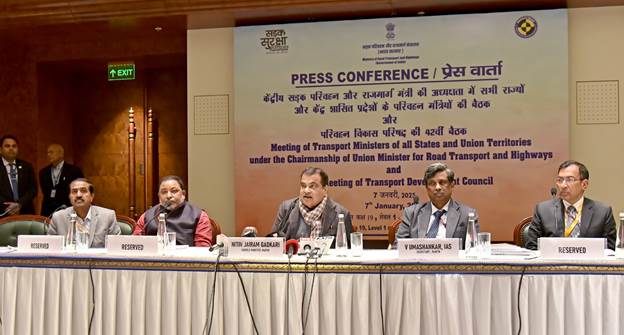 The discussions included timelines for the implementation of BS-VII regulations, acceleration of the Vehicle Scrapping Policy, nationwide adoption of PUCC 2.0, and expected reductions in pollution levels associated with these regulations. (Source: PIB)
The discussions included timelines for the implementation of BS-VII regulations, acceleration of the Vehicle Scrapping Policy, nationwide adoption of PUCC 2.0, and expected reductions in pollution levels associated with these regulations. (Source: PIB)
Furthermore, the Ministry of Road Transport & Highways also launched the “Scheme for Good Samaritan.”
It awards a cash prize of INR 5000 for each incidence, to the good samaritan who, by providing emergency aid and rushing to a hospital or trauma care centre within the Golden Hour of the accident to administer medical treatment, saved the life of a victim of a fatal accident involving a motor vehicle.
Photos



- 01
- 02
- 03
- 04
- 05












